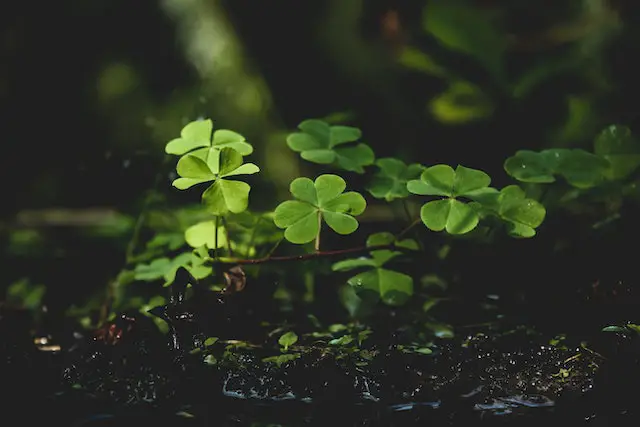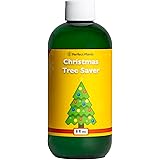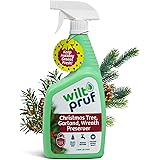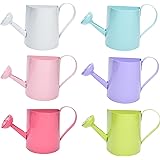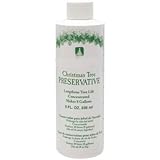Do you want to know what kills clover but not grass? Understanding exactly what can cause clover to die while grass remains healthy takes some research and knowledge of pests that affect lawns. A common culprit in this problem is a fungal or bacterial infection, as most grasses are naturally more resistant to these diseases than clover.
Another possible reason could be the application of fertilizers and herbicides, as they are often designed to target and kill clover but not grass. Lastly, excessive competition between the two plants can lead to a decline in the health of the clover in the area.
Managing Your Lawn: What Kills Clover But Leaves Grass Unharmed?
Managing a lawn can be a tricky prospect. Different grasses, plants, and even weeds have different characteristics that make them resistant or vulnerable to certain treatments. That can make it a challenge to know where to start when defending and protecting your grassy environment. .
One species of plant in particular that many homeowners struggle with is clover. While it’s not necessarily a weed per se, it often doesn’t line up with the desired aesthetic of the grass, and can potentially even affect its ability to flourish. Now, what kills clover but not grass?
Clover: A Primer
Before we dive into this question in detail, it makes sense to first get acquainted with clover as a species.
Clover is generally defined as a plant in the Trifolium genus, known for its three-lobed leaves and small, clustered flowers produced in a wide range of colors, though most are pink, red, and white. It can typically grow in size from annual to perennial, and due to its hardiness is not easily eradicated.
The Problem With Clover
While clover is largely harmless in and of itself, and even potentially beneficial for lawns and gardens in some regards, it isn’t usually a wanted house guest in many home grassy areas. Some of the common issues that knowledgeable gardeners associate with clover include:
- Clover is aesthetically different from grass, making it stand out like a sore thumb when planted in a grassy area.
- It has different nutritional needs than grass, meaning it will take up some of the same resources, potentially weakening the growth of the grass.
- Clover grows from a different root system than grass, making it less effective at binding soil particles together.
- Clover is strong and fast-growing, giving it an edge over the grass in a competition for resources.
Treatments That Kill Clover Without Injuring Grass
Fortunately, there are several methods of effective clover removal that don’t put your lovely grass in danger.
Herbicides
Herbicides typically remain the go-to option for dealing with most lawn nuisances, and clover is no exception. When selecting a herbicide to effectively eliminate clover while leaving your lawn unscathed, the guiding principle is to pick only those that are labeled specifically for broadleaf plants. A broadleaf herbicide should target only a range of plants such as clover, dandelions, wild onions, and others which have broader, differently shaped leaves than the grass in your lawn.
Physical Removal and Cover Cropping
If you prefer an organic approach or are dealing with an area too small for chemical treatments, there’s always the tried and true method of physical removal. Carefully raking the sod or clumps of clover should do the trick, though it may also be necessary to introduce a cover crop afterward to reduce the likelihood of clover returning.
Corn Gluten Meal
This method requires a bit more prep work, but can make for an effective and sustainable solution over the long term. Applying a corn gluten meal in the spring should prevent any clover from popping up in the area due to its presence decreasing the germination of weed and clover seeds, while remaining largely harmless to the grass.
In the end, one of the best defenses against clover is knowledge. Knowing what methods are best suited for your particular area and situational factors can help you protect your lawn without running the risk of’ injuring other species of plants due to collateral damage.
Keeping your grass healthy and free of pests and unwanted guests can be a challenge, but with the right strategies, it’s definitely possible!
Frequently Asked Questions (FAQs)
An herbicidal weed killer that contains ingredients like triclopyr or glyphosate will be effective in killing clover without harming your grass. Be sure to read the instructions when using a chemical weed killer to ensure it does not harm the surrounding landscape.
Depending on the size of the lawn, a lawn care company may use a combination of pre-emerge and post-emerge herbicides to keep your lawn healthy and clover-free.
Manual removal of clover is possible, but it is time consuming and difficult without a proper weeding tool. Fortunately, there are post-emergent herbicides that contain materials that selectively target clover without killing grass.
For small applications, a weeding roller or a spot treatment with an herbicide may be effective. To keep clover from growing back, it’s important to fertilize and water your grass throughout the spring and summer so that it is healthy and capable of blocking out the sun from clover, thus preventing its re-growth.
While mixing clover and grass can potentially help create a more resilient and diverse living landscape, it is not recommended because clover can quickly overtake grass in most situations.
If you are aiming to transition your lawn to a more natural clover-grass blend, it is best to slowly transition so that the clover doesn’t become overwhelming.
For large infestations, cutting clover may offer some temporary relief of clover infestations on your lawn. However, the growth habit of clover is such that it will continue to regenerate from excessive cutting or mowing.
For a longer-term solution, it is best to use an herbicide that selectively targets clover or adjust your fertilization routine to discourage the growth of clover.
There are several products on the market that will kill clover but not grass. Most weed killer sprays contain a combination of triclopyr or glyphosate, which are selective herbicides that will kill clover without damaging the grass when used properly.
For larger infestations, a pre-emergent herbicide may be effective. It’s important to note that some products will only target certain species of clover, so make sure to read the label to make sure it will target your specific clover outgrowth.
Preventing clover from growing is best accomplished by actively maintaining a healthy lawn environment. The most important things you can do are to keep your lawn fertilized, keep it watered properly, and mow it often.
Clover is a weed that needs sunlight to grow, and a healthy lawn can prevent it from reaching the surface. Additionally, using a pre-emergent herbicide can be beneficial in preventing clover from taking over your lawn.
Yes, clover is a favorite of many different species of bees, which makes it one of the most popularly planted pollinator supporting plants.
Clover attracts both honey bees and bumblebees and produces plenty of nectar and pollen for them to feed on throughout the blooming season.
Vinegar can be a useful tool in eliminating clover from a lawn or garden, but its effects are not as reliable as a selective herbicide. Vinegar contains acetic acid, which has been found to have an effect on clover and other weeds, and applying it directly to the weeds can help reduce their presence on a lawn.
Wrapping Things Up
Summarizing, clover can be difficult to eliminate from lawns because it’s tolerant of most herbicides. To keep your lush grass and get rid of the clover, you should use herbicides that are specifically labeled to kill clover, but won’t damage your grass. If these herbicides are applied correctly, they will effectively remove clover without killing your grass. Proper lawn maintenance is always key to keeping clover at bay. Mowing the lawn regularly and applying the right herbicide can help keep the clover from returning to your lawn and keep your grass looking healthy.
Overall, it is possible to get rid of the clover without damaging the grass, as long as you take the time to understand what kills clover but not grass. So, if you want to keep your lawn looking green and healthy, take the appropriate steps to remove the clover without harming your turf.
Auto Amazon Links: No products found.
Perfect Plants Christmas Tree Saver 8oz. | Easy Use Xmas Tree Preserver Food | Have Healthy Green Christmas Trees All Holiday Season
$16.99 (as of February 11, 2026 00:40 GMT +00:00 - More info- Product prices and availability are accurate as of the date/time indicated and are subject to change. Any price and availability information displayed on [relevant Amazon Site(s), as applicable] at the time of purchase will apply to the purchase of this product.
VEVOR Tree Watering Bags Slow Release, 4 Pack 16 Gallons Tree Watering Ring, Reusable Refillable Tree Irrigation Ring Water Bags, Heavy Duty Watering System for Shrub Tree Root Drip Irrigation
$29.99 (as of February 11, 2026 00:40 GMT +00:00 - More info- Product prices and availability are accurate as of the date/time indicated and are subject to change. Any price and availability information displayed on [relevant Amazon Site(s), as applicable] at the time of purchase will apply to the purchase of this product.
Wilt-Pruf® Christmas Tree/Cutting Preserver Spray |Preserves Christmas Trees, Wreaths, Garlands, Cuttings and Carved Pumpkins | Reduces Needle Drop | Keeps Cut Trees Fresh Longer | Natural (32 oz)
$21.99 (as of February 11, 2026 00:40 GMT +00:00 - More info- Product prices and availability are accurate as of the date/time indicated and are subject to change. Any price and availability information displayed on [relevant Amazon Site(s), as applicable] at the time of purchase will apply to the purchase of this product.
Mini Decorative Metal Watering Can, Set of 6, Height 1.97 inch, Cute Metal Jug for Hand Crafts,Garden Theme Parties, Home and Refrigerator Decor
$8.99 (as of February 11, 2026 00:40 GMT +00:00 - More info- Product prices and availability are accurate as of the date/time indicated and are subject to change. Any price and availability information displayed on [relevant Amazon Site(s), as applicable] at the time of purchase will apply to the purchase of this product.
Rocky Mountain Goods Christmas Tree Food - 8 oz Tree Preservative - Reduce Needle Drop - Greener Scent - Fir, Pine, Spruce Trees - Extend Tree Life
$9.95 (as of February 11, 2026 00:40 GMT +00:00 - More info- Product prices and availability are accurate as of the date/time indicated and are subject to change. Any price and availability information displayed on [relevant Amazon Site(s), as applicable] at the time of purchase will apply to the purchase of this product.

